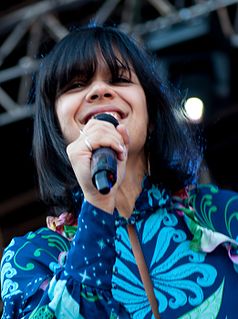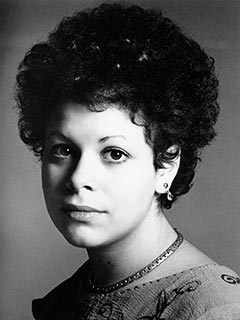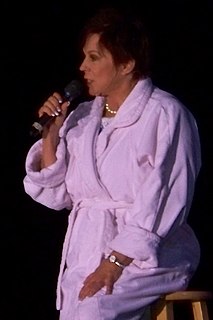A Quote by Amanda Palmer
One of the best things about Kickstarter and crowdfunding and the collapse of the music business is a lot of artists like me have been forced to face our own weird mess about ourselves and what we thought it meant to become musicians.
Related Quotes
There's always peripheral things that you like that you don't know, but starting with whatever his British influences are, are some of my favourite artists, and the American things are what I grew up on as well. In the end, for me, it's those foundations of the music business - those things that are a lot of the foundations of what music today is. You can hear a bit of all of those things that we talk about in almost all music today.
We've been fortunate enough to have a lot of people to ask us to be on their records - so many artists and musicians that we really respect and look up to. And it's been really special. But from our side, there's so much that we in the Little Dragon are still learning about ourselves writing-wise that I guess we haven't had that need.
Artists are just entrepreneurs. It's up to them to figure out how or if they can make a monetary profit from their passion ? from their calling, as I discussed above. Sometimes they can. Musicians can sell music, even in the face of piracy. Or they can sell their services ? concerts, etc. Painters and other artists can profit in similar ways. A novelist could use kickstarter for a sequel or get paid to consult on a movie version.
It doesn't matter if it's jazz or not. It's about how we listen, how we interact, how we guide our attention when we're listening, and how we can refine what we're doing musically. Also how we can create our own music, and what opportunities that can bring us, as creative musicians. And then insisting that musicians put themselves through an intellectually rigorous process, which involves a lot of reading and writing, while insisting that music scholars think about ethics.
Music is what is going to save me," "On the bad days, when I have to look at the cold, hard facts of life, I see that this is not the music business I came up in and I have to be very, very objective and detached and say, 'what's good about it and what's bad about it?' Mostly, I'm finding it good that it's not the same old music business, because the music business I came up in really didn't advance anything I was doing, and I don't think it was particularly kind to a lot of artists.
Ultimately, it comes down to taste. It comes down to trying to expose yourself to the best things that humans have done and then try to bring those things into what you're doing. Picasso had a saying: good artists copy, great artists steal. And we have always been shameless about stealing great ideas, and I think part of what made the Macintosh great was that the people working on it were musicians and poets and artists and zoologists and historians who also happened to be the best computer scientists in the world.
How is it that the poets have said so many fine things about our first love, so few about our later love? Are their first poems their best? or are not those the best which come from their fuller thought, their larger experience, their deeper-rooted affections? The boy's flute-like voice has its own spring charm; but the man should yield a richer, deeper music.
Me writing the book and the subsequent interactions that we had were actually the cap on that experience. We were still in this weird purgatory about it when I published the book. When I gave them the galleys and what ensued after that, then I understood a lot more about our relationships and what the experience meant to them. I'd never wanted to know what they thought about it at all.




































